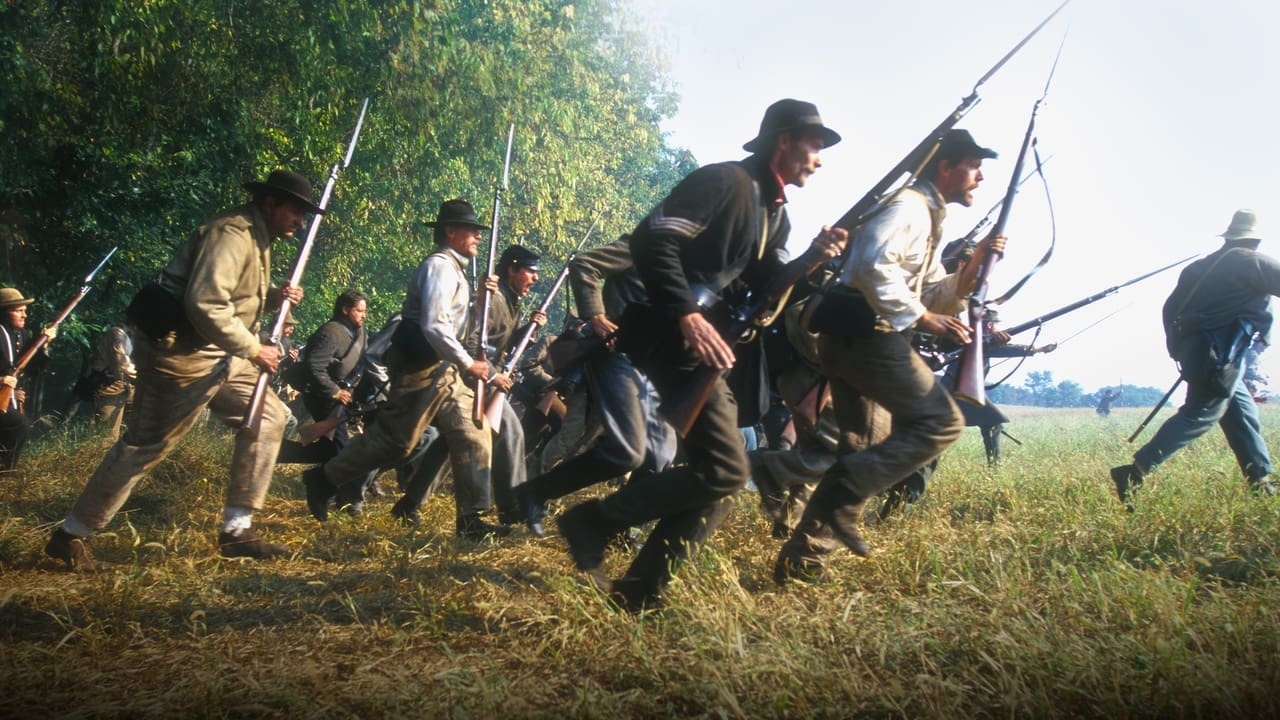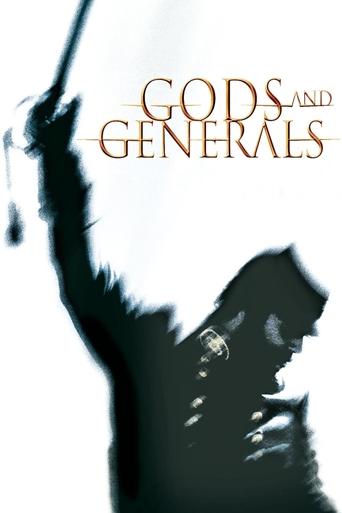

Lack of good storyline.
... View MoreToo much about the plot just didn't add up, the writing was bad, some of the scenes were cringey and awkward,
... View MoreExcellent and certainly provocative... If nothing else, the film is a real conversation starter.
... View MoreMostly, the movie is committed to the value of a good time.
... View MoreHoly cow, is this a terrible movie. Maxwell got the title right but got everything else wrong. I've read all 3 books countless times: Gods and Generals, The Killer Angels, and The Last Full Measure.This movie is 4 hours long and there are long, long, long stretches where Maxwell made stuff up. This movie has nothing to do with the book. There's nothing about Hancock and Armistead in California, Jackson going to see his mothers grave. Why would Maxwell cut out the Battle of Sharpsburg just so he could write endless scenes of Stonewall Jackson that never even happened?The point of view is entirely from the Confederacy - the movie smacks of "Lost Cause". The whole point of the book was to establish the point of view from both sides: here we get nothing but Jackson and little bit of Chamberlain.The death of Jackson is endless. I think it goes on almost 25 minutes. By the way, Robert E. Lee was a Lt. Col when he resigned from the US Army, not a full bird Colonel.
... View MoreOriginally published on Feb. 14, 2003This Robert F. Maxwell-directed Civil War epic is the second of a trilogy (after 1993's "Gettysburg," while "Last Full Measure" is scheduled to conclude) chronicling this country's most devastating conflict. And, while a bit over long (at 3 and-a-half hours) as well as a bit preachy in parts - and it could have been titled "The Stonewall Jackson Story," the picture is often engrossing and powerful. The battle scenes, which accurately depicted the insane tactic of marching directly into enemy rifle and cannon fire unblinkingly, are some of the best this scribble has witnessed. Movie begins with the Confederates firing on the Federal Fort Sumter in 1861 and depicts U.S. Army Col. Robert E. Lee (Robert Duval, Oscar winner for "Tender Mercies") turning down command of the Northern Army of the Potomac. He later becomes the leader of the Army of Northern Virginia. There are three main battles featured here: the first battle of Manasas (called Bull Run by Northern writers, July, 1861), Fredericksburg (December 1862) and Chancellorsville (May, 1863), all Confederate victories utilizing Lee's tactical brilliance as well as the invaluable assistance of his most trusted and able cavalry general, Jackson (played wonderfully by Stephan Lang, Gen. George Pickett in "Gettysburg," but best known as Ike Clanton in "Tombstone"). Lee realized that a long war of attrition would favor the North, which could call upon a population of approximately 20 million, as well as a huge industrial advantage. The South had just six million people, including three million slaves whom they would never arm. He also understood the art of maneuvering his troops and diving his forces to his advantage. And, much like Napoleon, scored victories while tremendously outnumbered. Quick and decisive wins were needed to throw the industrial Union into a panic and make the citizens less hungry for war while attracting possible aid from European nations. Jackson understood these tactics, as well, and used them to brutal effectiveness. He was fearless, too, earning his nickname at Manasas, standing like a stone wall before his retreating men and rallying them to victory. Both he and Lee attended West Point (when CSA Pres. Jefferson Dave was James Buchanan's Secretary of War) and learned strategy not only from Napoleon, but Wellington and Frederick the Great, among other brilliant military leaders. During the first two years of the war, the generalship and élan of the South scored triumph after triumph in the Eastern Campaign, while Federal leaders such as Gen. George B. McClellan and other lesser known men (such as Ambrose Burnside and George Meade, among others) just sat on their hands - much to Pres. Abraham Lincoln's ire. Jackson, as portrayed by Lang, was a complex and nuanced man of religious piety who abhorred the institution of slavery yet fought for the cause to sustain it. His relationships with his men, his wife and the daughter of a friend, Jane Corbin (Lydia Jordan, "Third Watch" TV series) betray a sensitive individual who seems woefully out of place in this great conflagration. His tactics, however, were second to none and who knows what his death (at the hands of his own troops shortly before Gettysburg) mortally hurt the Confederate cause.
... View MoreI'm a huge Civil War buff and I really enjoyed Gods and General...the novel.Unfortunately, the film was just a rambling mess that tried to introduce too many characters and tell too much of a complicated war. This film tried to be a drama, a biopic, and a war film among other things. Had they just focused on Stonewall Jackson, the film may have worked, but instead, they tried to follow the pattern of Gettysburg by telling as many sides as possible. Trying to tell three years of history proved to be too much. The result was that much of the history was left untold and too many of the characters were given too little screen time to adequately unwrap them.We don't ever see the important battles that occurred on the Peninsula, 2nd Manassas, or Antietam. The portrayals of many of the important figures is well-done. Robert Duvall is a big improvement over Martin Sheen, Stephen Lang does a good job as Stonewall...but the performances aren't enough to make the film worthwhile. However, the dialog was very archaic and grandiose; there are long monologues where a character will pray or talk at length about something. I get that this is to impart the deep religious convictions, but its overdone and it become tedious.I suppose you could watch the 5-hour director's cut...if you really want to sit on the couch for five hours.
... View More'Gods and Generals' is one of the best films I have ever seen, it is also the best American Civil War film of our time in my opinion. The story is touching, it shows the real side of the Confederacy and doesn't incriminate them as every other film does. Although the Confederacy had slaves etc, they weren't all bad people. In fact many were intellectuals and gentleman etc. This film shows a divided nation in its most fragile time to date. I highly recommend this film to anyone who is interested in the American Civil War or just likes a good historical film.I feel the film, actors and musicians never got the recognition that they deserved. This film was emotional, epic, historically accurate and interesting. I hope you enjoy this film as much as I do.
... View More